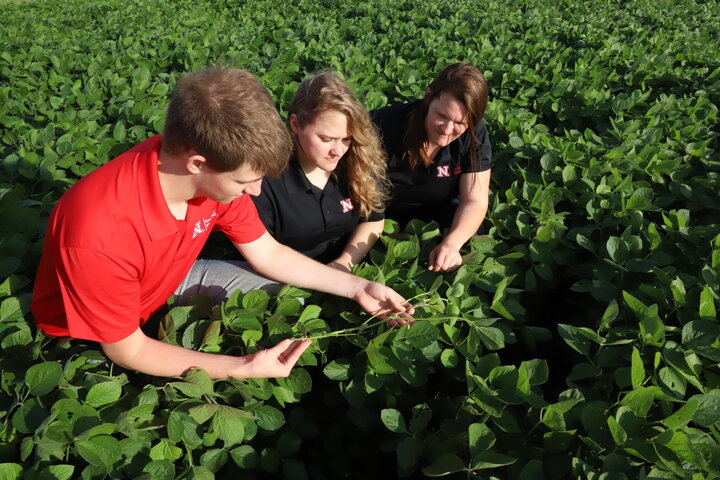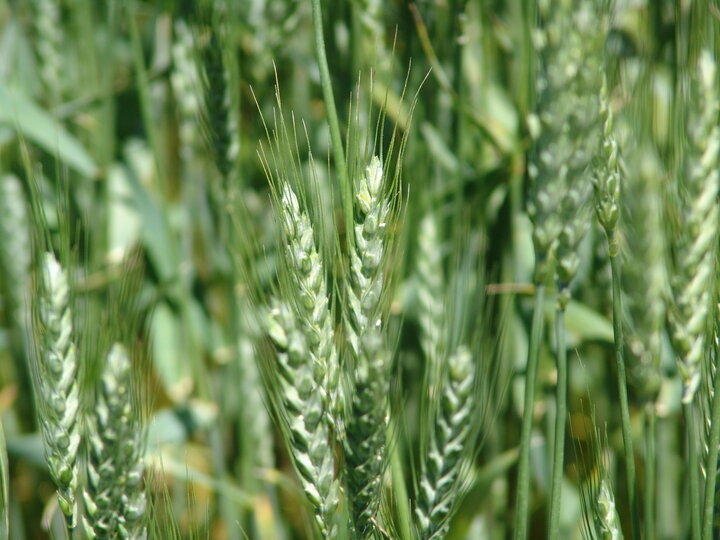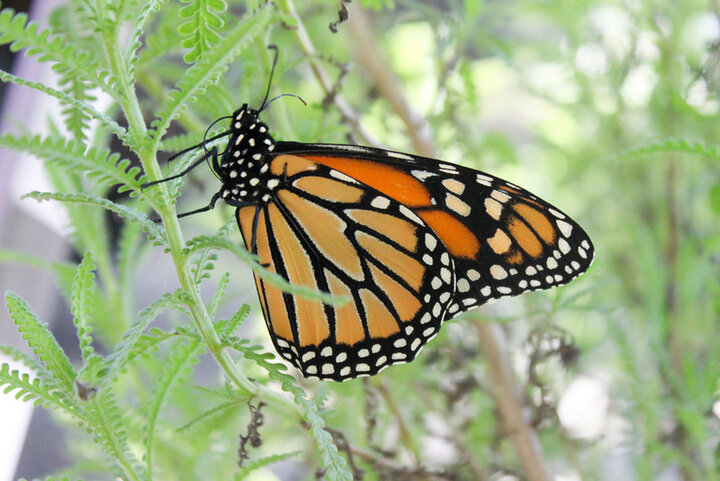Why Nebraska?

Plant health training at UNL will take advantage of the extensive diversity of crops, soils and environment that occurs across Nebraska and surrounding states.
Across Nebraska, there are four major ecoregions representing the western regions of primary U.S. corn and soybean production and extending into the semi-arid high plains. Read more...
Admissions - How to Apply

Students seeking admission to the DPH program must hold a B.S. or B.A. degree from an accredited college or university. Baccalaureate course work must include chemistry, mathematics, physics and biology (including plant biology). Read more...
Prerequisites & Recommended Undergraduate Courses

Prerequisites for the DPH program are a demonstrated background or training in a biological or related science discipline with a Bachelor of Arts, Bachelor of Science, or a Master of Science:
- Math - one semester beyond college algebra
- Chemistry - one semester
- Physics - one semester
- Biological Sciences - two semesters
- An additional semester of either physics or chemistry
- Read more...
DPH Curriculum

Graduate level courses across multiple disciplines, extensive internships and a research project make up requirements for the Doctor of Plant Health (DPH) degree.
Internships can be internal or external to the university, such as with the private sector, non-governmental organizations, and state or federal government.
Research projects may be with university personnel or off-campus collaborators. Research projects and comprehensive exam are to be determined by the student's advisory committee.
Students with an appropriate background should expect to complete this program within four years. Read more...
Program Costs

Cost will vary according to several factors. Non-resident students will pay somewhat more than resident students. Students who have received an M.S. degree or have taken courses from an accredited graduate program (and accepted by the admissions committee) will complete the degree in less time, and thus, lower their costs. Each student's personal expenses will vary depending on their situation. Read more...
After You're Admitted

Check in at the DPH Program Office: Stop by the DPH office in 279E Plant Sciences Hall so we can show you around and let you pick out your desk space in the DPH Student Room. Read more...
FAQ - Frequently Asked Questions

What is the DPH Degree? The Doctor of Plant Health (DPH) degree is a unique professional, doctoral degree similar in concept to the Doctor of Human Medicine (MD) or Doctor of Veterinary Medicine (DVM) degrees. This degree is offered exclusively by the College of Agricultural Sciences and Natural Resources at the University of Nebraska– Lincoln, Institute of Agriculture and Natural Sciences.
Is the DPH degree a PhD? No. The coursework required for the DPH degree is more extensive than that required for a PhD; and the major experiential training that DPH students receive is practicum based rather than research based. Therefore, the graduates receive a professional doctorate (DPH) degree and not a PhD. Click here for more frequently asked questions...